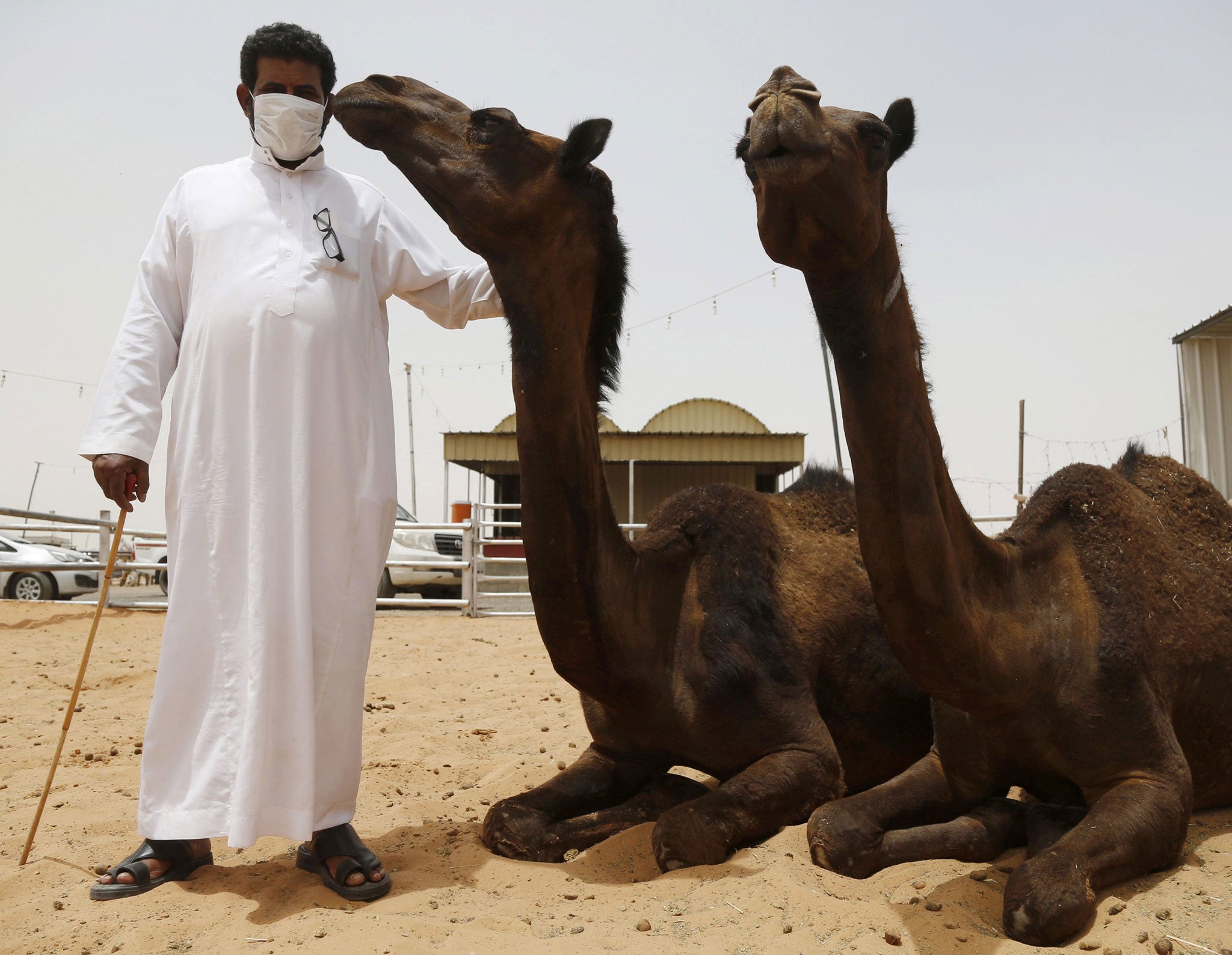Deadly Mers virus 'could now be airborne', warn scientists in study on Saudi Arabian barn
Scientists in Saudi Arabia found molecules of the virus contained in the air of a barn used by infected camels - and say they are worried by what that implies

Scientists have found the first evidence that a deadly virus originating in the Middle East may have become airborne.
The Middle East Respiratory Syndrome (Mers) virus has killed at least 327 of the recorded 850 people it has infected around the world since it emerged in Saudi Arabia two years ago.
Experts had previously believed its transmission required close physical contact with an infected person or animal - most commonly involving people handling camels in the Middle East.
But isolated Mers cases have been reported across Asia, the US and Europe - including at least two in Britain - and scientists described the detection of the virus in air samples as "concerning".
The find was made by a team of scientists at King Abdulaziz University in Jeddah, in Saudi Arabia.
For their research, Esam Azhar and his team collected three air samples on three consecutive days from a camel barn near Jeddah owned by a 43-year-old male Mers patient who later died from the disease.
An air sample collected on the same day as the first camel tested positive for the disease also contained Mers DNA, which were later discovered to be identical to fragments detected in the camel and its sick owner.
Writing in a study published in the online journal of the American Society for Microbiology, Azhar said: "The clear message here is that detection of airborne Mers-CoV molecules... warrants further investigations and measures to prevent possible airborne transmission of this deadly virus."
Viruses that spread through air - such as flu viruses for example - are far more likely to spread swiftly and widely in human populations than those that can only move from an animal to a person, or from person to person, via direct contact.
In May it emerged that the deadly virus could be spread by household pets including cats and dogs, and Azhar said: "This study also underscores the importance of obtaining a detailed clinical history with particular emphasis on any animal exposure for any Mers case, especially because recent reports suggest higher risk of [Mers] infections among people working with camels."
The World Health Organisation and the Saudi Health Ministry have advised camel farm and slaughterhouse workers to take precautions against MERS by ensuring good hygiene, including frequent hand washing after touching animals, facial protection where feasible, and wearing of protective clothing.
Join our commenting forum
Join thought-provoking conversations, follow other Independent readers and see their replies
Comments
Bookmark popover
Removed from bookmarks